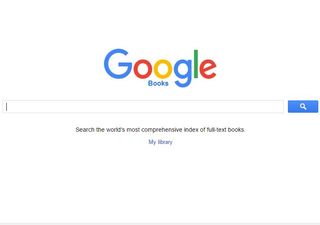Google's Book Scanning Falls Under Fair Use Doctrine, Says Appelate Court

In a landmark ruling, Google won the decade-old lawsuit in which the Authors' Guild sued the company for allegedly infringing on publishers' copyrights by scanning their books.
Google started scanning out-of-print books in 2004 by working with major libraries like Stanford, Columbia, the University of California, and the New York Public Library to get access to 20 million such books.
Google got sued a year later, in 2005, when the Authors Guild claimed that Google was infringing copyrights when scanning the books without the writers' permission. In 2013, a lower court judge ruled that Google's actions fell under the fair use doctrine. The Guild appealed the ruling, but the Appeals Court ruled the same way now in a unanimous decision (3-0).
Although Google itself has access to the full text of all of those books from the massive scanning project, that text is not shown to the public. When people search for something specific about a book, then Google returns only a limited amount of information about that book.
The court found that Google's book snippets are usually only one eighth of a page, and there can only be one snippet per page and a maximum of three snippets in total for a given search term. In some cases, the snippet view isn't available when the whole snippet could satisfy the user's search, such as for cookbooks or dictionaries.
The Authors Guild argued that Google stripped them of a "licensed search market," where instead of Google providing that book context for free, the authors and publishers could've gotten paid for it in license fees. However, the judges said that because the snippets provide information about the book, then that information is not covered by copyright law, and therefore it can't be licensed by the authors.
The Guild also made an argument about a potential data breach that could expose all of their books, which would then degrade their value if they were later disseminated online. However, the court found Google's security measures, which included keeping the files "walled off from the public Internet," good enough.
Stay on the Cutting Edge
Join the experts who read Tom's Hardware for the inside track on enthusiast PC tech news — and have for over 25 years. We'll send breaking news and in-depth reviews of CPUs, GPUs, AI, maker hardware and more straight to your inbox.
The Authors' Guild promised to keep fighting and take the case to the Supreme Court:
"We are very disheartened that the court was unable to understand the grave impact that this decision, if left standing, could have on copyright incentives and, ultimately, our literary heritage. We trust that the Supreme Court will see fit to correct the Second Circuit's reduction of fair use to a one-factor test—whether the use is, in the court's eye, 'transformative.'"
______________________________________________________________________

Lucian Armasu joined Tom’s Hardware in early 2014. He writes news stories on mobile, chipsets, security, privacy, and anything else that might be of interest to him from the technology world. Outside of Tom’s Hardware, he dreams of becoming an entrepreneur.
You can follow him at @lucian_armasu. Follow us @tomshardware, on Facebook and on Google+.
-
gangrel I am not opposed to reasonable copyrights; I simply don't feel that there's anything close to reasonable about copyrights today. When the Authors' Guild claims loss of a licensed search...to my mind, in many cases, they're dreaming. We're talking major hallucinations. First: who is going to *pay* to develop the database, if it's going to be a fee for service? it's simply not going to be used enough, IMO.Reply
For example: some time back, I learned a tidbit of family history. I wanted to investigate. Some detail was actually available...and it was pretty interesting! OK, to me. There were two books, IIRC; in both, my grandfather, the family member I was researching, was really an afterthought; the main subjects of the books were historically VASTLY more significant. (Which was why it was interesting to me.) I wouldn't have paid to find these...or, at least, nothing significant. -
synphul Without getting into the legitimacy of the whole issue, what I find scary is that 3 judges from a court have the capability to rule on whether data security is 'good enough' or not. No offense, they're good at interpreting law (usually) but they're not internet or data security savvy. I imagine the court system found the va database "good enough", assumed sony's databases were secured "good enough" and so on. These aren't mom and pop organizations with 1990's security tech and obviously "good enough" doesn't cut it or we wouldn't have major data breaches every time you turn on the news. Convincing a judge or judges whose job it is to work with written law of something they're not educated on such as data security shouldn't be up to them to decide. At least not in my opinion. I won't even mention other high ranking government officials who seem rather plagued by data security issues. :PReply -
gangrel But in this case, there's no open access point.Reply
And who would want this data? It's page images of out of print books. The goal of breaking into the VA system was to obtain information to facilitate identity theft...what plausible purpose would be served by breaking into the data here? -
clockworkavatar I.P. law in this country needs an overhaul, if the books are out of print, but still available in public libraries, they should be available in their entirety online for free as well.Reply -
Karthik Sankar @synphul , Both the people who advocate and the judges themselves tend to be selected based on their knowledge of the case. And even if the judges are not well informed on Technology and Security , they employ an INDEPENDANT organization to look into the case and report back. So yes the judges make educated rulings .Google is literally doing all these authors a favor by helping people find their books , the authors just got greedy and expect money from google because its billion dollar company . Would you ask an advertisement company to pay for advertising your product? ....Reply
the case is quite simple. -
gangrel That actually has nothing to do with the legal basis for the case, which is whether or not Google's use is allowed under the fair use exceptions in copyright law.Reply -
tsnor @Lucian Armasu I really liked the article. Reads well. This is the first I heard of this case. If they gave you more words learning more about the google full text index and how to use it would be good.Reply -
wskinny For god sake!Reply
Do you want civilization to suffer a second Dark Ages/Inquisition days knowledge loss???
Let google scan ALL BOOKS in a fair usage policy and back them all up 1000000 times so we never again loose knowledge for feck sake.
Most Popular







